Over the years, David M. Csinos found himself astounded by the depth of children’s faith and the complex imagination they bring to their ideas. For his new book, Little Theologians: Children, Culture, and the Making of Theological Meaning, the assistant professor at the Atlantic School of Theology sat down with children from four United Church congregations and asked them about religion. He spoke with Julie McGonegal.
Julie McGonegal: Tell me about what happened in your interviews with the children.
You may unsubscribe from any of our newsletters at any time.
David Csinos: Each interview started with the child drawing a picture of God, because I didn’t want to ask them questions. I didn’t want to direct the interview much at all; I wanted them to direct it. They had a non-verbal medium through which they could express and create ideas in that very moment — and put words to them, as they’re drawing and we’re talking and riffing on different rabbit trails that we follow.
JM: What surprises emerged?
DC: In one picture, God was depicted as a Minecraft character in a castle. There’s nothing inherently wrong with that, as doctrinally “out there” as it might be! As a researcher, I was there not to judge their images, but simply to listen.
And I think that’s part of what parents need to do. We need to listen and trust that the Spirit is at work. Trust that all of our ideas and experiences of God are in flux. So if a child is saying something that seems heretical, understand that theology is a process, a working-out. The exception is when God is viewed as dangerous or out to get us. That’s where I would lean on a response like “I know it sometimes feels that way, but God loves and cares for us. Here’s a story about how I know that.”
JM: What did you take away from the interviews?
DC: One takeaway was that things are not as complicated as they seem. Teaching theology to kids is not just about imparting information or sharing doctrine and ideas about God. It’s also about equipping young people to do the work of theology for themselves. That means that we need the raw material of our sacred stories, but we also need the skills of holding contradiction, listening closely to what others are saying and not discounting it, and being able to share our spiritual experiences.
There was one girl who shared the experience of God showing her heaven in a dream, and she said that people told her that it didn’t really happen. Well, a little while later she had a second dream where she felt she was encountering God, and I was the only person she told about it. We need to equip children with a safe space where they can explore their spiritual ideas and experiences.
More on Broadview:
- How therapeutic clowning injects humour for a different kind of healing
- When I lost my belief in hell, my faith began to unravel
- Children’s Bibles are North America’s unlikeliest publishing success story
JM: Your book argues that children don’t passively consume theology — they actively create it. Tell me more about that.
DC: My research reveals that the way children think theologically is in many ways reflective of the broader cultural context of their congregation. They’re drawing on it as a source, as a method, as content, while combining it with all kinds of experiences and ideas to create their own unique theologies.
For example, in the Indigenous congregation in which I interviewed four children, relationships were crucial. Teaching children that they are part of the community was more important than learning about the Bible for them. One way that was reflected in the children is that when I asked them to describe their faith community, they talked about the people. With other congregations, the response was about the programs they run and what they do. For the Indigenous church, it was about “These are the people who know me, and these are the people I know.”
Other congregations could learn from this approach, too. When we focus on the content of intellectual belief at the expense of relationships, that’s when young people doubt and question. And then when they’re confident that they do not agree, they suddenly feel as if they do not belong at the church anymore.
JM: So building open, trusting spaces means young people feel they can come with their doubts and still experience acceptance.
DC: Absolutely. I came away from this with a deeper understanding of the importance of simply having faith conversations with children — of allowing them to let their theological imaginations run wild.
JM: How can congregations help engage kids in exploring their faith?
DC: There’s an ongoing discussion about how we get children into worship services rather than having a separate Sunday school.
I’m a big fan of the idea. But it’s not simply about saying, “Children, we have a little bag for you with activities.” It’s about children coming and not simply being spectators but doing readings, helping with communion, collecting the offering.
Also, in order to welcome them, we need to set aside our own assumptions and be willing to encounter ideas that might not only be different from our own but in stark disagreement with our current thinking. If we say we value children and want them to be part of the church, then we have to recognize that it is their church, too, and we have to be willing to do things that we may not want to do, things that are uncomfortable and new.
Another idea is simply to make space for children to have conversations with one another and with adults in a kind of unfettered, unrestricted, anything-goes format. If we want to help them think theologically, we need to help them explore faith, scripture and liturgy for themselves; that process is incredibly important.
It’s like if you’re learning a musical instrument. You want to be able to follow the music and read the notes and perform it properly, but sometimes you just want to close the door and jam in any way you want — and make mistakes and have it sound awful — because you’re learning the boundaries.
When we focus on the content of intellectual belief at the expense of relationships, that’s when young people doubt and question.
JM: Children are often in different places theologically. How can we accommodate for this diversity?
DC: A lot of it, especially with younger children, has to do with our practice and disposition. If we are concerned about having children understand something in a particular way and, for one reason or another, they can’t, that’s going to lead to frustration. It could lead to questions of “What’s wrong with me?” If, on the other hand, we really are focused on relationships — in other words, “I am happy to see you every time, no matter what, and there’s no guilt if I don’t see you again for weeks because of hockey practice” — our actions will say a lot. They will account and make room for a diversity of intellectual ideas.
Children often struggle with metaphors. They are trying to understand God through their own experiences. But in a way, isn’t that what we are all trying to do? There is nothing wrong with the fact that they can’t speak metaphorically. It’s not a deficiency. So I wouldn’t worry when children say God is a superhero. And if God is a superhero whose superpowers are love and healing, that’s amazing!
JM: Do you have a few guiding principles for adults who want to talk to children about theology?
DC: The first thing is that theology is not the exclusive realm of professional theologians and ministers. Everyone is a theologian; everyone has a theological perspective and is creating theological meaning even if they aren’t aware of it. One of the biggest fears I hear from parents and volunteers is that children will ask questions that they don’t know the answer to. Use it as an opportunity to explore the question. Take the child’s lead. You do not need any degrees; you don’t need a program.
If there’s fear, embrace the fact that you aren’t going to know the answers. And even when you do think you know the answer, you don’t have to say it — you can explore it together.
Often as adults there’s this assumption that we have to be really prepared when working with children. And we do, but it’s not the kind of surface-level preparedness of an arsenal of questions and a plan of how we’re going to do things. It’s more a deeper-level awareness of what we’re walking into, an awareness that we’re going to touch on deep, difficult subjects that we won’t have answers for.
I have a friend who says, “We cannot control where and when God shows up in children’s lives, but we can do as much as possible to facilitate those God moments.” When they happen, we need to speak about them, interpret them and engage with them.
***
This interview has been condensed and edited for length and clarity. It first appeared in Broadview’s July/August 2021 issue with the title “Children’s time.”










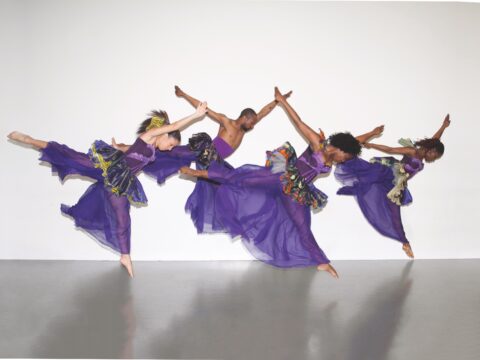
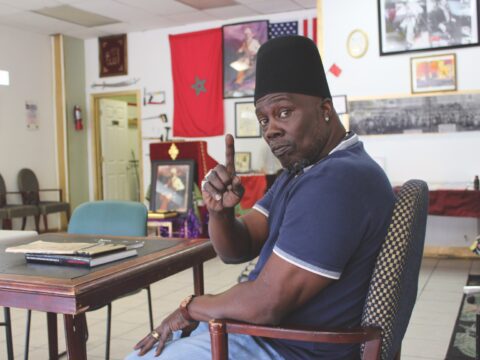
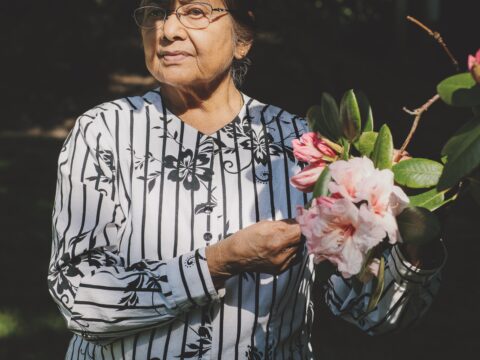
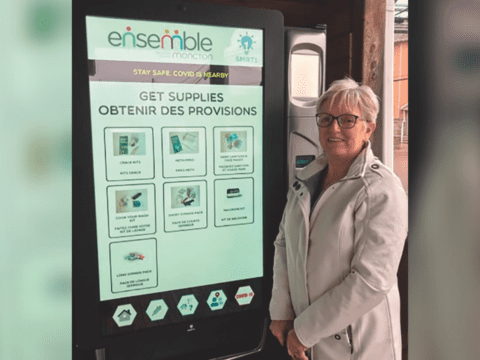
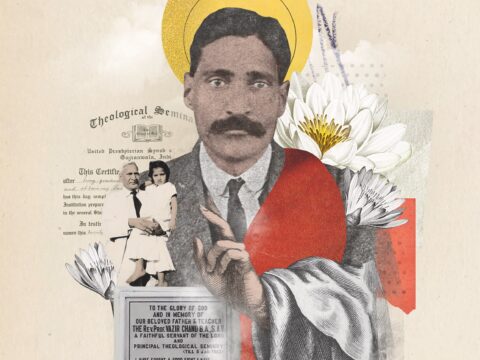
Re not having the all the answers for children:
I’m quite happy with that. If children want to know God then he isn’t going to hide from them and they will find their own way and it will be all the more meaningful to them.
When I was 12 years old I told God that if he was anything that I’d been told then I didn’t want to know him, but I was going to wait and find out. I DID! He’s much more wonderful than was led to believe.
Thank you for this timely repeat article, since vacation bible school is starting this week. I am preparing, with the guidance of the holy spirit, to help the children in my care, to understand that God loves them and that all through life, no matter what happens, they are never alone. Children have suffered immensely through this entire scourge of the pandemic, which will just mutate and not leave us. They need to have healing in mind, body and soul in relationships at home, at church, school and in their communities. Love and empathy is there if only we will open our hearts to it and listen to the voice. Dear Lord, keep me ever mindful of my message and purpose and how I deliver it, in the name of God the Father the Son and the Holy Ghost, Amen.